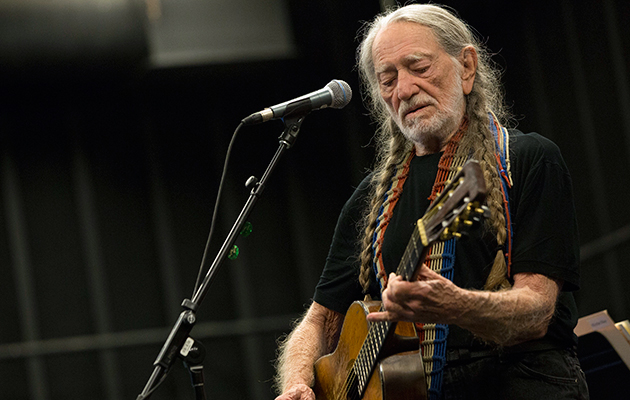By what standards does he judge his own work now? How happy can you be with a new song when you’ve written so many that stuck around long enough to be old songs?
“I don’t think that stands in my way,” he says. “The last two or three things I’ve written, I’ve written in the same way. The good ideas don’t come along that often. Though I guess being hungry helps a lot with that. If you really need a song, you can come up with one. But, sure, you start comparing what you’ve just written with some of the other stuff, and inevitably it doesn’t hold up, because it hasn’t had a chance to become anything yet.”
So even after all this time, even Willie Nelson hasn’t figured out the formula?
“I know it when I hear it,” he smiles, “but as far as being able to just go write it and reproduce it, if I could do that, I’d be a trillionaire.”
He has done okay, though, presumably, notwithstanding his run-in with the USA’s Internal Revenue Service, who in 1990 presented him with a bill for US$32 million – rather more than he had at the time.
“I can’t complain,” he says.
And he doesn’t. If one track on Country Music stands out as emblematic, it’s the version of Joe Hayes and Jack Rhodes’ “Satisfied Mind”. A contented reflection on a full existence, it is the closest Nelson has got – or seems, on current form, likely to get – to rustling up rage at the dying of the light. Asked if he’d considered emulating the late-life furies of his friend Johnny Cash, he grins: “Aw, I could probably do that, one of these days. Do my morbid album. My wrist-slashing music. No, they weren’t my favourite Johnny Cash records.” Although a shoulder injury would force him to postpone some tour dates a few days after our meeting, he has no plans to retire.
“I’ve quit the road a hundred times,” he says. “After every long tour, I say that’s it, don’t book anymore. And after I’ve been home a couple of days, it’s: where are we going next?”
When that question is turned back on him, he mentions a new album he has been working on, a 32-track history of country music under the direction of producer James Stroud. He seems, again, happy to have done it while seeming like he wouldn’t be bothered if he hadn’t. Asked if he thinks actively about adding to the list of voices who have sung his songs, he responds with another expression of Zen serenity.
“I’m sure I could think up some people,” he says, then pauses. “But not really, no. If I were a really good song plugger, like some of the writers I know really are – I mean, they’ll go home with you to make sure you record one of their songs… if I was that persistent, well then, yeah. But I’ve been so fortunate, in hearing so many people do my songs, that I feel like that’d be a little bit greedy.”



